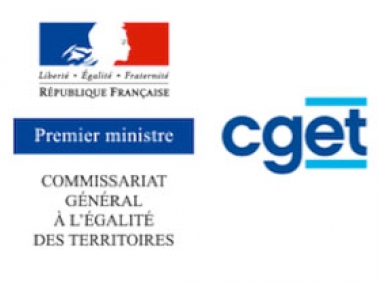The General Commission for Territorial Equality – Background and Mission of the new Managing Authority of URBACT
Edited on
23 February 2015We had the chance to discuss these issues with Raphael Le Mehauté, Prefect and Deputy General Commissioner for Territorial Equality, and Director for Cities and Urban Cohesion at GCTE, the new URBACT Programme Managing Authority.

Q: France has been involved as the Managing Authority of URBACT Programme since its inception and has recently reaffirmed its support for the next programming period. Can you please explain to us the background of France's involvement?
A: France put itself forward as a candidate for managing the URBACT Programme because the country has pursued a policy of supporting residents in the most underprivileged communities for more than 30 years now.
This policy, based on a series of key priorities set by the French State, is being offered to regional authorities through City Contracts. These contracts are designed to provide additional support for public authorities in delivering programmes and policies for education, integration, employment and economic development, and are backed by special funds for communities with a particularly high concentration of poor people. Ten years ago, we launched an urban renewal programme specifically for these communities in the principled belief that the environment that people live in is just as important as the social dimension. This urban renewal programme has just been extended for the next 10 years.
It is against the background of this expertise that France put itself forward as the managing authority for URBACT to share the urban experience - and not necessarily just the French experience - with the network of cities in the programme. We seek out good practices, and the fact of working with the Secretariat on programme coordination brings us ideas and allows us to add traction to the programme in conjunction with other Member States.
France recently introduced a new law for cities and urban cohesion (loi de programmation pour la ville et la cohésion urbaine), which redefines the City Contracts. The new contracts will provide a single framework for implementing the city policies and take positive action to ensure closer integration of challenged communities into the wider city in ways that ensure residents are supported in gaining access to education, healthcare and culture.
Resident participation is a new and integral part of these revised contracts. More precisely, residents will be asked to work with local authorities on drafting and structuring these contracts. Some 1,300 urban communities have been identified and targeted as concentrated areas of poverty, and the residents of each and every one will be consulted. This local initiative invites residents to take part, while the local authority has an obligation to incorporate the outcomes of the consultation process in drafting, supervising and implementing the contract. This process is a revolutionary change for France, and one that is not necessarily easy to bring about. It is important to remind ourselves that this participation is very probably not the primary preoccupation of the people involved, and even when they are interested in contributing, they may not necessarily have the resources to do so. So it is up to the State, local Mayors and urban authority chairmen to encourage residents to participate and convince them that it is for their benefit.
It is then up to residents to tell us how they would like their community to be shaped and how we can use their local expertise and personal experience. This is a strong commitment to take local residents' views into account and invite them to take responsibility for their own communities and cities. Against this background, the expertise of URBACT and the good practices already identified for maximising resident participation are very important. French cities also have the opportunity to participate in URBACT networks in order to learn directly about the participative method and, more generally, about the URBACT Method.

Q: In the context of this very wide-ranging and ambitious policy, a new structure has just been created - the General Commission for Territorial Equality (GCTE). Would you please explain how the structure was set up, its mission and its goals?
A: Before the GCTE was set up, France had three public service bodies involved in promoting regional equality. First, there was the cross-Ministry Delegation for Country Planning (DATAR), which had been in place since 1963 to coordinate State-run regional development policies; the City Direction (SG-CIV) followed, which was the central body responsible for administering the cities policy; and lastly we had the Agency for Social Cohesion (ACSE), which was created relatively recently to implement territorial equality initiatives.
The decision was made to merge all three to arrive at an overarching territorial initiative that would include all the areas covered by the cities policy, so that general planning issues could also be taken into account when considering the most challenged and poorest communities. Until then, territorial development addressed major policy guidelines and broad national balances, but stopped at the city boundary. This merger was therefore a conscious move by the State to take a much more inclusive approach to underprivileged communities. Introducing the GCTE is also totally consistent with the integrated approach to City Contracts as well, which addresses three central priorities: social issues, the living environment and urban renewal, and the local economy and jobs. We are therefore trying to respond to the fundamental questions shared by all residents, which are living, working and enjoying a fulfilled life within their locality. The GCTE is made up of three entities: the Cities and Urban Cohesion Department, which prepares and implements the city policies; the Territorial Strategy Department, which prepares the regional equality strategy on the basis of survey and study outcomes in order to gain an integrated overview of all types of region, whether urban, suburban or rural, and a third department tasked with Developing Territorial Capabilities and guiding regional equality policy, especially for the most challenged and vulnerable areas.
Q: And how does URBACT fit into this structure? Do you see the possibility of synergies and opportunities emerging from this new configuration?
A : URBACT was so far under the umbrella of SG-CIV, one of the structures that have now merged to create the GCTE, and which was previously its Managing Authority; URBACT therefore still reports to the CEGT, and more specifically to its cities and urban cohesion department. But URBACT also benefits from this change by reporting to a stronger official body, which reports directly to the Prime Minister, rather to a departmental minister, as was previously the case. The resulting - much clearer – cross-Ministry overview could contribute greatly to URBACT.
Q: A final question to conclude the interview: what hopes do you have for the URBACT III Programme?
A: If I have one hope for URBACT, it is that it will become better at providing cities with the information and knowledge it gathers.
URBACT must ensure that all Member States can benefit from URBACT III, but not to the detriment of specific networks. That requires both ourselves as the Managing Authority, and the URBACT Secretariat, to be exceptionally effective in the way we share information at national level. This initiative will be strengthened through the URBACT national contact points, who will be much more active in the new programme.
I therefore hope for improved access to information for all Member States, so that their cities can benefit from maximum participation in URBACT networks.
 Submitted by URBACT on
Submitted by URBACT on
